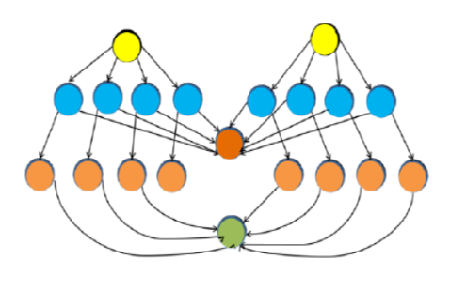


Indian Journal of Science and Technology
DOI: 10.17485/IJST/v15i20.1809
Year: 2022, Volume: 15, Issue: 20, Pages: 965-975
Original Article
Sangeeta P Sangani1, Sunil F Rodd1
1Department of Computer Science and Engineering, KLS Gogte Institute of Technology, Karnataka, Belagavi, India
Received Date:27 September 2021, Accepted Date:24 March 2022, Published Date:28 May 2022
Background : To design an effective workflow scheduling optimization of web servers that will bring good trade-offs to meet the workflow task delay prerequisite and performance requirement. Methods: This study presents a delayaware and performance-efficient energy optimization (DAPEEO) technique for workflow execution in a heterogeneous environment (i.e., edge-cloud environment). This technique provides a workflow execution model which meets the application delay prerequisite and performance requirement. Findings: Our model has been designed to reduce the energy consumption, increase throughput, reduce computational cost and computational time to provide a delay-aware and performance-efficient workflow model for the web servers in hybrid cloud computing. Our model Delay Aware and Performance Efficient Workflow Scheduling of Web Servers in Hybrid Cloud Computing Environment (DAPEEO) has reduced the energy consumption by 4.217%, increased the throughput by 19.51%, and reduce the computational cost by 62.38% when compared with the existing Deadline-Constrained Cost Optimization for Hybrid Clouds (DCOH) models. Furthermore, the average energy consumption showed a reduction of 40.993% and 90.384% when compared with the DCOH and Self-Configuring and Self-Healing of Cloud-based Resources (RADAR) workload model respectively. Experiment outcome shows the DAPEEO technique achieves much superior energy efficiency, throughput and computation cost reduction when compared with the existing workflow execution model. Novelty: Existing model failed to balance reducing cost, and meeting workflow execution deadlines under a heterogeneous environment. On the other side, the DAPEEO is efficient in bringing trade-offs in reducing energy dissipation and meeting task deadlines with reduced cost under the edge-cloud computing model.
Keywords: Cloud Computing; EdgeCloud; DAPEEO; Energy Efficiency; Throughput; Cost
© 2022 Sangani & Rodd. This is an open-access article distributed under the terms of the Creative Commons Attribution License, which permits unrestricted use, distribution, and reproduction in any medium, provided the original author and source are credited.
Published By Indian Society for Education and Environment (iSee)
Subscribe now for latest articles and news.